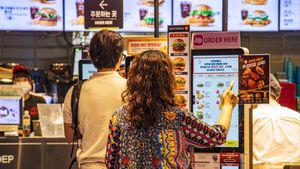The Trump administration has made headlines once again by seizing a second aircraft belonging to Venezuelan President Nicolás Maduro, as tensions escalate over sanctions violations. This latest move is part of the U.S. government's broader strategy to undermine Maduro's regime, which has faced intense criticism and opposition both domestically and internationally.
On Thursday, February 6, 2025, U.S. Secretary of State Marco Rubio confirmed the seizure of the Dassault Falcon 200 during his visit to Santo Domingo, Dominican Republic, the final stop of his five-nation tour of Latin America. The plane, known for transporting Maduro and key aides on international trips to countries like Greece, Turkey, Russia, and Cuba, came under scrutiny for violating U.S. sanctions, reflecting Washington's growing frustration with the Maduro government.
The seizure, which required Rubio to authorize spending more than $230,000 for the plane’s maintenance and storage costs, was part of larger efforts to pressure Venezuela’s leadership to relinquish its grip on power. According to reports from The Economic Times, these aircraft have allegedly been utilized by Maduro's regime for unauthorized travels to several countries, raising alarms about potential collusion with international partners outside U.S. sanctioning efforts.
"The seizure of the plane is part of Washington's efforts to pressure Maduro’s regime and limit his international reach," highlighted U.S. officials. The urgency of this action mirrors the Trump administration's broader objective of targeting the assets linked to Maduro's government, which has been accused of engaging in corrupt practices and illicit behaviors, including drug trafficking and corruption.
This marks the second time within six months the U.S. has confiscated Maduro's aircraft. The first seizure occurred back in September 2024, involving a Dassault Falcon 900EX valued at $13 million, which was also taken from the Dominican Republic. This earlier seizure was premised on claims indicating Maduro's associates utilized shell companies to mask their acquisition of the plane, thereby violating the sanctions imposed by the U.S.
Additional stress on the Maduro administration stems from the recent missions undertaken by U.S. envoy Richard Grenell, who traveled to Caracas and managed to negotiate the release of six Americans detained within Venezuela. Seizing the plane is also viewed as part of the aftermath of Grenell's discussions with Maduro, emphasizing the U.S. commitment to addressing illegal immigration and other concerns stemming from Venezuelan nationals entering the U.S. without authorization.
U.S. scrutiny of Maduro's regime goes hand-in-hand with the government's increasing reward for information leading to his arrest, which has surged from $15 million to $25 million due to his contentious re-inauguration on January 10. The sense is growing among U.S. officials and analysts alike—as tensions between Washington and Caracas escalate—that the Trump administration remains undeterred from deploying measures against Maduro’s authoritarian rule.
These events also broach wider political conversations surrounding U.S. foreign policy and interventionism within Latin America, especially as Rubio addressed claims from Panamanian President José Raúl Mulino concerning fees for U.S. warships to transit the Panama Canal. The diplomatic friction is emblematic of the larger geopolitical challenges facing the Trump administration as they strive to combat perceived threats from China and bolster support for regional allies against the backdrop of complex international power dynamics.
Despite roadblocks, American officials remain steadfast, reiteratively demonstrating the U.S.'s commitment to sanction enforcement and asset seizure as tools against regimes labeled as narco-terroristic behaviors. The pressure on Maduro's government is palpable, and it appears the U.S. is resolute in not only maintaining but intensifying these economic sanctions—highlighting the dire need for Venezuelan leadership to reconsider its strategies moving forward.
Overall, the seizure of Maduro's aircraft not only showcases the continuing tactics employed by the Trump administration to pressure authoritarian regimes but also signals the U.S.'s willingness to explore every avenue available to restore democracy and uphold human rights standards globally. Only time will tell how these dynamics will evolve, either prompting negotiation or continued confrontation.



